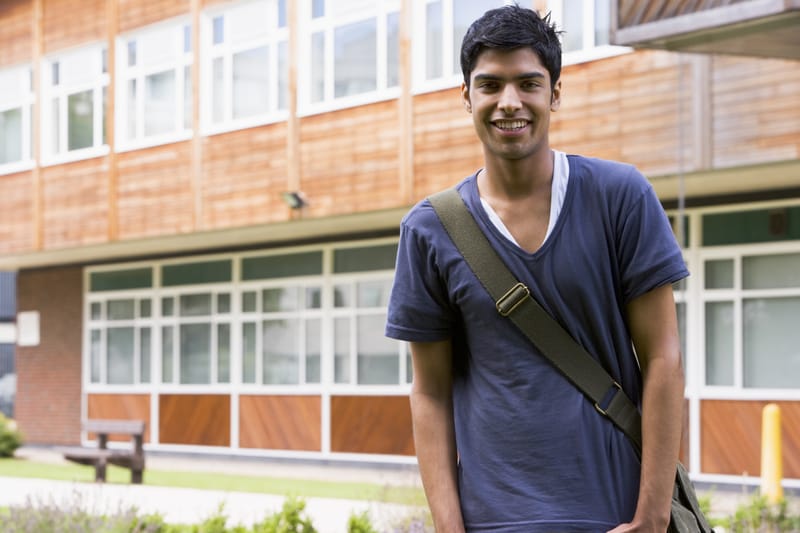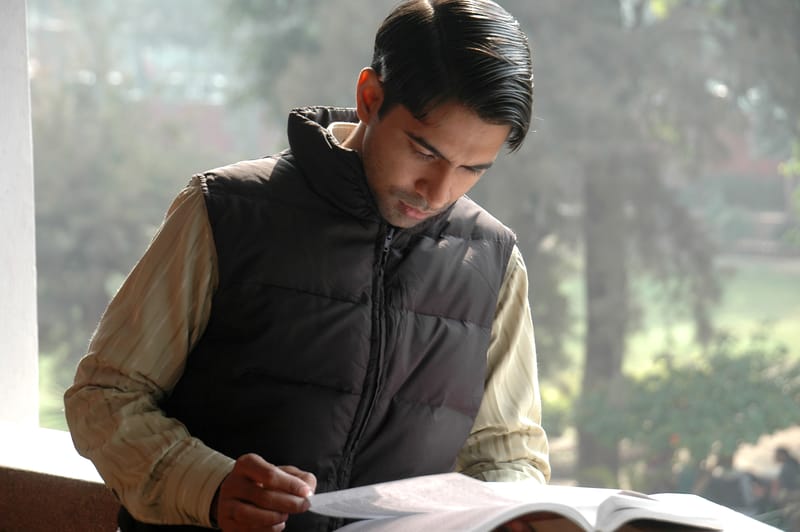Daffodil Preparatory School
A Community of Passionate Educators and Learners
About

Furthermore, tuition support is individual specific and therefore the learners have their learning needs catered for in terms of their strengths and areas of challenge as identified from initial assessments tests.
The pre-university learning journey is quite challenging and therefore requires planning and the setting of goals for the individual learner, the pursuance of which should enhance learner achievement over their learning journey.
Learners have the opportunity to register for tuition support and guidance from Key Stage 2 to Key Stage 4 to prepare for their GCSEs and IGCSEs; and then register for further support to prepare them for their GCE AS and A levels.
Daffodil Preparatory School will also provide support for learners identified as presenting with learning challenges and upon assessment will have the relevant support designed to support and enhance their access to the curriculum. The tutoring will be tailored to their specific needs to help them overcome their specific learning challenges.
Courses

KEY STAGE 2
Learners studying at Years 3, 4, 5 and 6 have opportunity to register for tailored tuition support in their individual specific areas of strengths and challenges. This should enhance their abilities in reading, maths, spelling, punctuation and grammar and also be ready for the KS2 SATs. Learners with the ambition to progress to Grammar schools will therefore have a better chance as they will be engaged in activities which enhance learner preparedness to achieve the required standards for entry. Subjects offered: • English • Maths

KEY STAGE 3
Learners studying at Years 7, 8 and 9 have opportunity to register for bespoke learning support over the first three years of the secondary school education. Our specialised tutors will engage with learners to identify each learner’s areas of need and design tutoring methods in line with the outcomes of initial assessment tests for each learner. Subjects offered: • English • Maths • Science

KEY STAGE 4
Learners studying at Years 10 and 11 have the opportunity to register for bespoke tuition support and coaching to enhance their achievement at their GCSEs and IGCSEs. The support offered at this stage is more intense and prepares learners on the GCSE and IGCSE assessment expectations. Achievement at higher GCSE grades requires awareness of the examination and assessment expectations and enables the learner to focus and prepare, knowing what is required of them to achieve those higher grades. This is where our specialised tutors play a significant role in guiding and coaching learners to enhance their performance in their exams. Subjects Offered: • English • English Literature • Maths • Science • Economics • Law • Business Studies

MUSIC DEPARTMENT
Daffodil Preparatory School has a music department offering practical and theoretical support for learners in music specifically in relation to: • Violin • Cello • Piano • Organ • Saxophone • Trumpet The lessons will be offered at: • Beginners • Level 1 • and Level 2

KEY STAGE 5
Learners who enter the GCE A level stage have the opportunity to register for tuition support in their areas of need. This is a key pre-university learning stage and requires intensive learning and focus on learning outcomes and assessment criteria to enhance learner achievement of higher A level grades for entry to the top UK Universities. The aim therefore is to prepare learners to target those higher grades required for admission to top UK universities such as the prestigious RUSSEL Group, University Alliance (business engaged) or the Million+ (a public policy think tank made up of universities). Subjects Offered: • Maths • Physics • Chemistry • Biology • Economics • Government and Politics • Business Studies • English • English Literature • Law
Guidance

GUIDANCE
Guidance on the UK education system and specific requirements for learners to gain admission to top UK universities: GCE A level grades Voluntary work Other extracurricular activities
Quality Assurance

QUALITY ASSURANCE
Daffodil Preparatory School is regulated by policies consistent with Ofsted regulations which ensure that learners are fully protected from harm and physical injury. All staff members go through Enhanced DBS checks in line with our Child Protection and Safeguarding Policies in line with DfE and Ofsted requirements. Our college is spacious and all requirements are PAT Tested. There are provisions in place for Fire Safety and regular Risk Assessment. There is a single point of entry and exit to enhance security of the Centre premises. All visitors must report to the front desk. In line with our GDPR policy we are required to keep data on our learners secure and safe and not share with third parties without learner consent unless required by law to do so. Information on how the Daffodil Preparatory School abides by the Ofsted Safeguarding requirements shall be communicated to parents on registration of their child.
Learn MoreTime Slots
Our Facilities
Entry Requirements
* Student MUST bring copy of his/her passport and one recent photograph
* Pay your deposit and monthly fees in advance before you start attending your classes

How To Get Daffodil Preparatory School
HOW TO GET TO THE Daffodil Preparatory School
By Bus
Bus routes : 15, 115, 135, D3, 100 & 339
By Underground
The nearest underground station is Whitechapel on District Line, Hammersmith Line and Elizabeth Line , Overground. Daffodil Preparatory School is about 5 - 8 minutes’ walk from the station.
Downloads
Application Form
Daffodil Preparatory School Application Form
Fees List
Fees List
POLICIES
Policy Booklet
Enquiry Form
Affiliations/Registration
UKRLP No
UK Register of Learning Providers - UKRLP No: 10089486
Contact US
- 161-163 Commercial Road, London E1 2DA, UK
 +44-07979547727
+44-07979547727- admin@ukccollege.co.uk
- Mon-Fri - 08:00-20:00
Free Resources
Primary
General
- The Learning Zone (Oxford University Museum of Natural History website) - covers animals, fossils, insects, minerals, rocks.
- Primary resources website - lesson plans, activity ideas and resources for primary teachers.
- Classroom Secrets Kids website - platform for learning grammar, punctuation, spelling, maths, reading history (years 1-6).
- Doorway online website - collection of interactive literacy games and numeracy activities.
- Emotional ABCs website - teach children ages 4-11, how to figure out what they are feeling, why they are having that emotion, and how to make better choices.
- Pobble 365 website - ‘One picture. One teaching resource. Every day.’
- Robin Hood Multi Academy Trust website - lots of learning projects for parents and schools (EYFS, KS1, Y3/4, Y5/6). Be sure to read the project overview guides first.
- Home Learning Resources (Teacher’s pet website) - provides thousands of resources for KS1 and KS2.
- Learning at home (TTS website) - home learning activity booklets for Early Years, KS1 and KS2.
- Twinkl website - 500,000+ teacher-created materials and resources.
Art
- 30 ways to get creative (GrowEatGift website).
Literacy
- Authorfy master classes (Authorfy website) - online creative writing masterclasses with bestselling children’s authors. Also offering daily 10 minute challenges with authors and illustrators for children aged 5-12.
- Navigo - Pyramid of the Lost Words (app) on the iRead website. Aims to support beginner readers to develop reading skills (accuracy, fluency and comprehension) through engaging with the personalised content and activities.
- Oxford Owl website - e-books for ages 3-11 (requires account signup).
- Home Learning Pack #1 Nature and Animals (Reading Realm website).
- Learning Pack #2 Fairy Tales (Reading Realm website).
- Home Learning Pack #3 Creative Writing Prompts on the Reading Realm website.
- Teach your monster to read website - an award-winning game that makes learning to read fun.
Numeracy
- Maths lessons on the the Robertson Programme website (Canada). Inquiry-based teaching in Maths and Science.
- Corbett Maths Primary website - videos, worksheets, study cards, practice papers.
- Eedi website - Craig Barton’s maths resources.
- Oxford Owl (maths games and activities) website - for ages 3-11 (requires sign up for an account).
- NRich (Primary) website - primary maths activities and games.
- Mathsticks website - an online platform for maths games.
- Matific website - personalised maths learning for primary aged children.
- NumBots website - games that focus on addition and subtraction.
- White Rose Maths website - provides maths lessons for Years 1-8.
Physical education
- Jump Start Jonny website - weekly workouts and activities (a paid site with access to some free activities).
Science
- Wild days website - daily outdoor learning activities for children aged 4-11. Created by Earthwatch, with Michaela Strachan and Nick Baker.
- Science Investigations on The Robertson Programme website (Canada). Inquiry-based teaching in Maths and Science.
- Climate Kids on NASA website - produced by the Earth Science Communications Team at NASA's Jet Propulsion Laboratory.
- IPP Science for kids (PDF, 1MB) on the Max Planck Institute for Plasma Physics (Germany): A workbook about Energy and Fusion.
- Science activities for primary parents (Y1-6) on the Rethinking Education website - practical ideas for parents to do with their children. Linked to the National Curriculum for Years 1 to 6.
- That Science Lady website - lots of resources, including home discussion questions, enquiry questions and careers information.
- GrowEatGift website - 30 ways to go wild with science.
- Retrieval roulette (via Google drive) - Q&A sheets for Primary Science years 1 to 6, by Louise Cass and Mr Badham.
Secondary
General
- Retrieval Roulettes (A Chemical Orthodoxy website) - a list of Q&A spreadsheets for retrieval practice, including History, English Lit, IB Business Management, A-level Psychology, RE, Sociology, Philosophy, and lots on science.
- Gojimo website - a revision app that covers 28 GCSE subjects, 20 A level subjects, and much more.
Business studies
- Starter High (Brian Hamilton Foundation website) - guidance for teenagers on how to start businesses.
- Award in Personal Finance - Teacher Support Material (PDF, 2.6MB) on the London Institute of Banking & Finance website.
English
- Discovering Literature (British Library website).
- Remote learning @SPryke2 (via dropbox) – revision guides and remote learning guides for GCSE English lit – Christmas Carol, Inspector Calls, MacBeth.
Maths
- NRich (Secondary) website – secondary Maths activities and games.
Modern foreign languages
- Learn a language for free. Forever. (Duo Lingo website) - gamified platform for practicing speaking and listening in a range of languages.
Religious Education (RE)
- Discovering Sacred Texts (British Library website).
Science
- Antibubbles (Born to Engineer website) - video clips, practical activities, worksheets and further reading for KS3.
- Climate Change: How Do We Know? (NASA website) - scientific evidence for warming of the climate system.
- Ormston Meridian Academy Faculty of Science website - includes SLOP (shed loads of practice) sheets, knowledge organisers, recall roulette spreadsheets.
- Stairway Learning website - a platform to make the learning of STEM subjects (Science, Technology, Engineering and Maths) enjoyable and effective. Interactive lessons targeted to students studying towards their Maths, Physics and Biology GCSEs.
STEM (Science, Technology, Engineering and Maths)
- Smallpeice website - engineering projects for children aged 11-17.
General secondary and primary
- BBC Bitesize on BBC website - provides interactive activities mapped against the national curricula for England, Northern Ireland, Scotland and Wales. Covers Early Years, Primary, Secondary and 16+.
- Make Any Room a Classroom (BrainPOP website) - resources on a range of subjects, both traditional school-based subjects and topical subjects.
- Discovering Children’s Books (British library website).
- Online Resources (British Library website) - unique collection items and expert commentary related to History, English, Religious Studies and Citizenship.
- Coursera website - an American online learning platform that offers massive open online courses (MOOC), specialisations, and degrees in a variety of subjects, such as engineering, data science, machine learning, mathematics, business, computer science, digital marketing, humanities, medicine, biology, social sciences, and others.
- Learning Activities (Children’s University of Manchester website) - a suite of activities and resources covering History, Languages, Science, Art and Design, and student life.
- Discovery education (US-based) website - videos, activities, printable resources on a wide range of topics. (some free content available).
- Encyclopedia Britannica website - a range of quizzes, videos and news on topical issues.
- Resources for teachers, parents and children (The Economist Educational Foundation website) - a range of classroom resources on politicians and power, general elections, the News, the Climate emergency, knife crime etc.
- Go Noodle (app) - movement and mindfulness exercises for kids.
- Kahoot website - a platform where you can create quizzes, or use quizzes made by others. Children can play individually or in teams. Requires two screens.
- Kahoot distance learning website - a handy guide to distance learning (PDF).
- Khan academy website - a vast library of online learning courses.
- Kids encyclopedia facts (Kiddle website): an encyclopedia for kids.
- Kialo website - a public discussion platform designed to facilitate reasoned debates about complex topics online.
- Learning by questions website - a wide-ranging resource covering English, Maths, Science at primary and secondary. Designed to be an in-class teaching and learning tool but can be used to deliver question sets to pupils at home.
- MemRise website - an interactive platform for learning languages.
- Myths and legends website - provides information, activities and resources for teachers.
- Panjango website - a careers-based experiential learning platform to help children learn about the world of work.
- Scholastic Learn at Home on the Classroom Magazine website (US-based) - learn at Home, 20 day-by-day projects to keep kids reading, thinking, and growing.
- Seneca website - a huge range of online courses and resources covering a wide range of courses, from primary to 16+. Also includes CPD for teachers.
- Home Learning Hub (Skills builder website) - activities designed to help young people develop the essential skills they need to succeed - whatever their path in life.
- Ideas for kids (Smart School House website) - Lots of creative ideas for craft projects to do at home.
- Summer Camp Hub website - virtual summer camps.
- Travel and Leisure website - virtual tours of 12 famous museums.
- Typing club website - learn to touch type.
- Young writers website - regular writing competitions for primary and secondary age children.
- Quizlet website - a website and app that provides learning tools, games and interactive flashcards covering topics on a wide range of subjects and difficulty levels.
Computing
- DF Robot website - a range of electronics projects you can do at home.
- Free Microsoft Courseware (Grey Campus website) - free training in Microsoft courseware during the COVID-19 pandemic.
- Free Data Science Foundation Bootcamp (Grey Campus website) - free data science boot camp course.
English
- Learning from home (The Poetry Society website) - celebrates poetry with a range of events, educational programmes, and resources. Includes a dedicated ‘Learning from Home’ page, which links to a wide variety of resources for students, from Year 1 to Further Education.
Maths
- Me-U Maths (Me-U website) - practice questions for children from reception to year 9.
Science
- Home learning projects (CREST Awards website) - a range of home learning science projects for children aged 5-18.
- Space to Learn (ISSET website) - every Tuesday, at 2pm British Summer Time, there is a live-stream Q&A session with astronauts on the International Space Station. Astronaut Steve Swanson says "Just like many people on Earth right now, astronauts live in self-isolation on the International Space Station. Tune in to learn how I made Space fun and ask me your favourite ‘space’ question!"
- Educator resources on Science North website (Canada) - engaging science activities, experiments and videos.
- Earth School (TED Ed website) - offers daily adventures or quests that help children understand and celebrate our natural world, while learning about how dependent we are on our planet. Every weekday between Earth Day (April 22nd) and World Environment Day (June 5th).
- Teaching resource: What is archaeology? The history beneath our feet (The Museum of London Archaeology website) - a cross-curricular project, suitable for children aged 7-13.
YouTube
There are many channels with educational courses for children and adults alike. Here are just a few:
- Maths Kitchen (YouTube video channel)
- Draw with Rob (YouTube video channel, Rob Biddulph)
- Cosmic Kids Yoga (YouTube video channel)
- Draw-Along-A-Lenton (YouTube video channel, Steven Lenton)
- The Brain Scoop (YouTube video channel)
- Crash Course Kids (YouTube video channel)
- Free School (YouTube video channel)
- Geek Gurl Diaries (YouTube video channel)
- Geography Focus (YouTube video channel)
- The History of Africa, with Zeinab Badawi (YouTube video channel, BBC News Africa) - a 15-part BBC documentary series.
- Kurzgesagt – In a Nutshell (YouTube video channel)
- Kids Learning Tube (YouTube video channel)
- Joe Wicks (YouTube video channel)
- Mike Likes Science (YouTube video channel)
- National Geographic Kids (YouTube video channel)
- Science Channel (YouTube video channel)
- SciShow (YouTube video channel)
- SciShow Kids (YouTube video channel)
- The Smallpeice Trust (YouTube video channel)
- Science Max (YouTube video channel)
- Learn at home with YouTube - a curated list of educational YouTube channels and live streams.
For teachers and school leaders
- African Kingdoms website - a suite of resources for teachers planning to teach West African history. Aimed at British teachers from KS2 through to KS5.
- Education City website - teaching resources on a range of topics for children aged three to 11.
You will also find source materials based on one of our colleagues' national research on professional learning communities and self-assessment tools for school leaders and for teachers based on our research on evidence-informed teaching.
Source materials
- Contents guide (PDF, 0.4MB)
- Booklet 1 – User guide: getting started and thinking about your journey (PDF, 0.5MB)
- Route map (PDF, 0.7MB)
- What is a professional learning community? A summary (PDF, 0.2MB)
Familiarisation and deepening understanding
- Booklet 2 – Creating and sustaining an effective professional learning community (PDF, 0.7MB) – Think piece
- Booklet 3 – Setting professional learning communities in an international context (PDF, – Think piece
- Booklet 4 – Broadening the learning community: key messages (PDF, 0.7MB) – Think piece
- Booklet 5 – Exploring the idea of professional learning communities (PDF, 0.6MB) – Sorting and matching activity